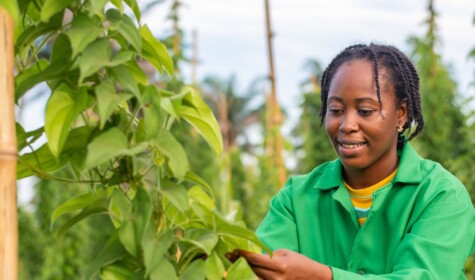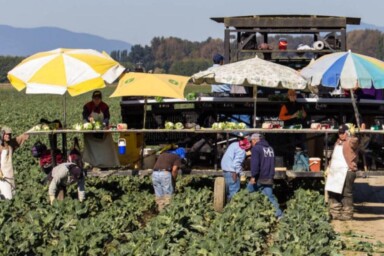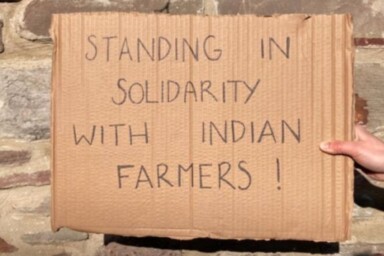When it comes to True Cost Accounting (TCA) on farms, the Sustainable Food Trust is a pioneer. As the concept gains prominence and its possibility as a realistic tool for farm sustainability becomes apparent, we must also reflect on gender and racial equity in our food systems. To this day, no TCA farm tool has ever attempted to include the hidden human or social costs that are created by farms and felt by women or Black, Indigenous and People of Colour (BIPOC). A team of researchers from Cornell University is looking to change that.
Our current food system does not sustain lives, livelihoods or our planet, in large part because we do not value much of the work, land or inputs required to create good food. TCA can be used to incentivise new values in our food system. The innovative accounting tool works to quantify the hidden costs and benefits created on a farm; it then supports good behaviours and disciplines harmful ones. Traditionally, this means valuing the benefits of clean water or putting a price on carbon, but more goes into food production than soil, seeds and water. Women and BIPOC communities are at the heart of our food system, whether it’s providing uncompensated homecare or temporary foreign workers harvesting for long hours in difficult conditions. These farmers and farmworkers must be represented and compensated for the total of their work provided to food production and to have the power to do so without fear of discrimination or harm, and with dignity.
Much of the inequity experienced by marginalised people is the result of both historic structures that were created to disadvantage women and people of colour, and current embedded stereotypes and barriers. Both are difficult to compensate for because, similar to pollution, the issue often does not have a distinct and definable source. For example, many farmers of colour do not qualify for national tax incentives, are not provided access to educational materials or technical assistance and are tasked with managing some of the most barren lands in any nation. While these are certainly social capital issues, they are difficult to internalise on the footprint of individual farms. The researchers will use a questionnaire to examine to what extent American and Canadian farms make active or passive decisions that impact BIPOC farmers and farmworkers.
Gender-based equity on farms will be studied using three over-arching themes: recognition, representation and redistribution. This framework is meant to correct economic, cultural and political inequalities that subordinate women. For example, as an industrial model of farming took over in North America, a segregation between women and men appeared. A woman farmer is now often seen as a helpmate on the family farm or tasked with generating off-farm income. This creates lasting formal and informal barriers in access to networks, capital and decision-making tools. This is the case despite the fact that women’s off-farm income is increasingly important to the vitality of the farm. In fact, Farm Credit Canada, Canada’s largest farm finance organisation, prefers farm families to have off-farm income. The research will make recommendations on how TCA can reward measures taken to reduce discrimination, like gender-based violence and unequal wages, and increase visibility of women’s work like encouraging accurate job titles and providing opportunities for decisions about production.
Some discrimination intersects both race and gender. This is often the case on farms that hire additional labour. Here, the researchers will focus on questions such as assigned tasks for farm workers, agency over decision-making processes, access to healthcare, and discrimination policies or arbitration mechanisms.
Our food system will only become sustainable if women and racial and ethnic minority farmworkers and owners are allowed full and fair access to food production tools and resources. By knowing the true cost and benefit of ecosystem services, including gender and racial inequities, our food system may begin to re-incorporate natural and human spaces, creating and exchanging value as one system. Put another way, a good food system is not one that just feeds people, but serves as a culturally, politically and ecologically nourishing space.
The findings and recommendations from the research will be discussed during a United Nations research event on 10th June, 2021.






